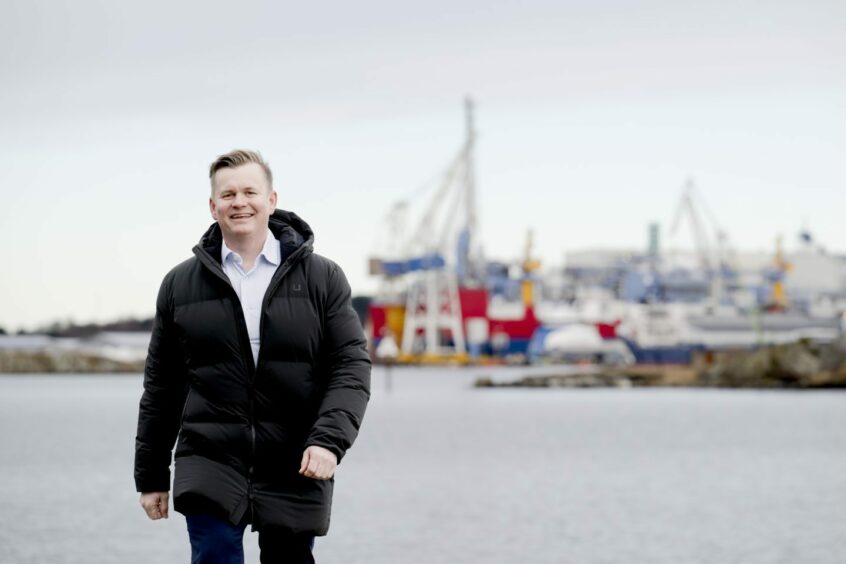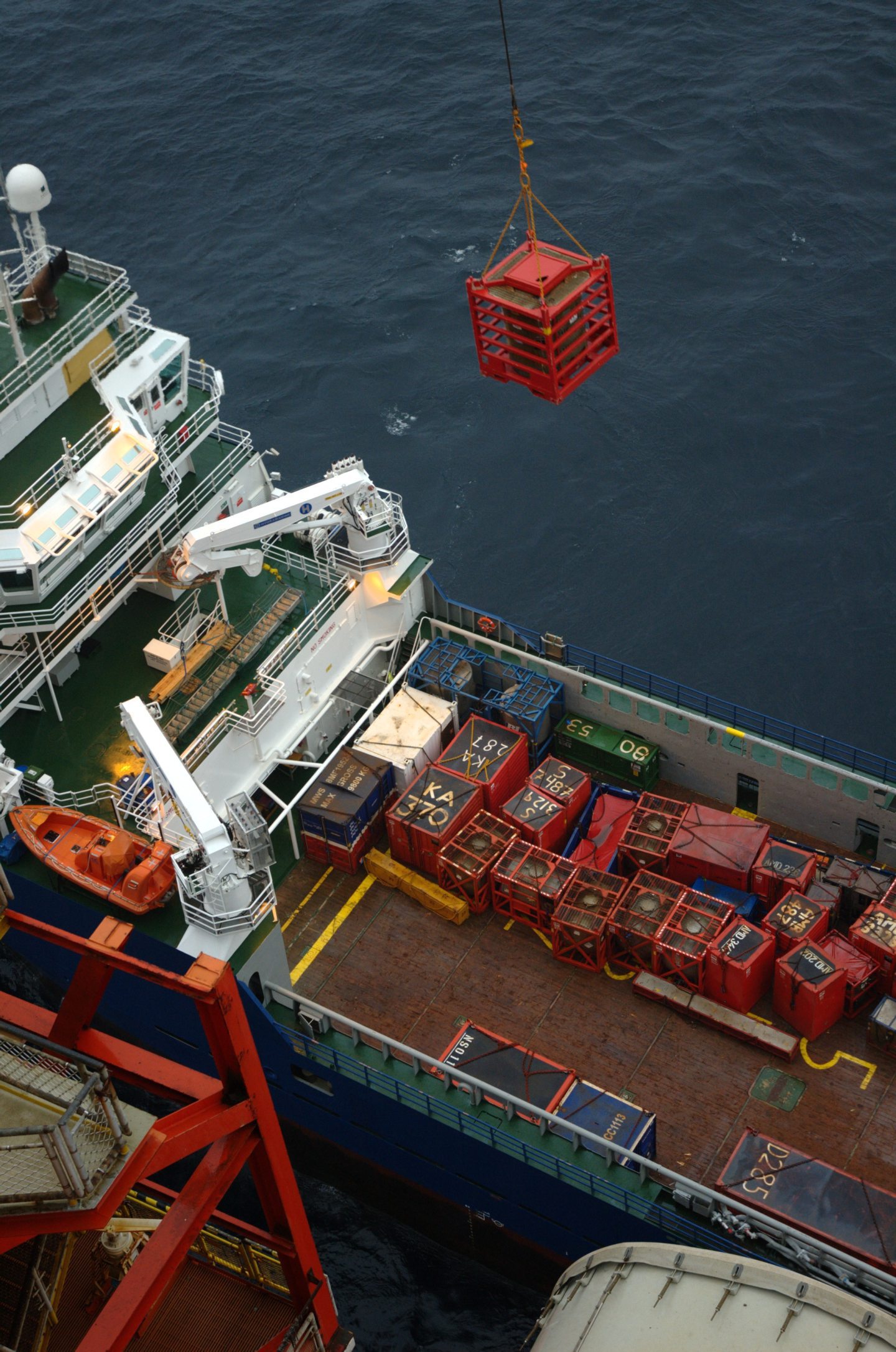
Digitalisation is the future for logistics in the energy sector. It creates efficiency, allowing all stakeholders to seamlessly connect with each other.
And it streamlines operations by offering 360-degree visibility and real-time updates. But not all companies have made the leap to digitalisation, partly from a lack of knowledge of the benefits it produces.
Someone who is particularly well-placed to comment on the matter is Daniel Ullenes, the Global Sales Manager at the logistics software company Kabal. In his 10 years at Kabal, he’s worked with customers from Newfoundland to Brazil, from the Gulf of Mexico to the North Sea, and most places in between. He knows the fears and uncertainties which sometimes slow the move to digitalisation. As Daniel says: “Whenever I discuss digitising energy logistics, I am often met with the exact same arguments. I call them industry myths.”
So how do we counter them?
Here we talked to Daniel to confront the seven myths delaying the move to digitalisation
Myth 1: Some companies feel they don’t need logistics software as they already have complete control. What would you say to them?
“We already have full control” is something we often hear when talking to operators who haven’t started their digitalization journey. But working closely with energy companies around the globe has taught me one thing: logistics and supply chain often become surprised to find how little control they actually have. Main reason is that only 10–20% of an operator’s inventory is controlled through their ERP system. The rest, 80–90% is run via Excel or other non-digital tools. This is why many Operators struggle with delays, roundtrips, lost cargo and overspending on rental tools and vessels, especially during drilling. Their tools keep them in the dark, and in the dark it’s hard to see all you need to see, to know all you need to know.
A digital solution, like Kabal, replaces most Excel spreadsheets. Instead, all cargo and transport information is put into our software. This then becomes a live – and single – point of truth that enhances information sharing and reporting between stakeholders. It also gives teams access to accurate information earlier, and they finally achieve total control of cargo, resources, and transport.

Another thing we hear is: “We’ve done this for decades and know all there is to know.” And that is true. Knowledge is not the problem. Our potential customers always have competency. What they lack is the information and tools they deserve. Combine heavy industry experience and know-how with a digital toolbox, and a world of efficiencies, savings and emissions reduction awaits.
For the record: ERP Solutions like SAP are phenomenal, and we are not in any way replacing them. A digital tool like Kabal will enhance the information you already get and work together with SAP. Kabal is a logistics system; SAP is a financial system. You need both, and we, of course, offer the integration of both.
Myth 2: What about those who say digitalisation is too expensive?
Digitalisation has a cost to it, but that it is expensive is not true. Cost is all relative. Working on old-school solutions is labor-intensive and difficult to maintain in a high information flow situation. You might miss efficiency opportunities, have more non-productive time, and pay more than required to your service companies to keep track of things for you. Imagine helicoptering out equipment because you forgot something, or not returning a high-dollar rental tool. Now that is expensive.
Kabal customers can achieve massive savings, including 30% on vessel cost, 20% on fuel, 30-50% on rental tools, and 5% on personnel and aviation.
Myth 3: Will companies’ mistakes and weaknesses be revealed?
Yes, but – and this is a big but – it will also reveal why, and how one can avoid future delays and non-productive time. A good logistics software does not point fingers and assign blame. Everyone usually does their best in any situation. Kabal simply arms our customers with better tools and information. This does not mean that they were not good before. It just means that with better tools comes better performance.
Myth 4: But isn’t digitising logistics only relevant for the global supermajors?
Kabal works with customers of all sizes and places. We have operators with one well yearly or every other year. And we work with midsize operators that have two to five wells a year. Then we work with majors that drill 20-plus wells a year.
The common factor is that they all perform better with our system. They all save money. They all continue to use us every year. Actually, no customer has ever stopped using us, once started. This says a lot.
A digital cloud solution will also allow smaller operators to share resources with larger operators through shared vessel runs etc. This is a tremendous cost-saving potential.
Myth 5: Won’t going digital overhaul how a company works?
Going digital with the wrong solution could require a lot of change. Going digital with the right solution means minimal change. In Kabal, everyone does in the system what they did before. But you can stop doing other people’s jobs for them and get access to better information earlier. You also get KPIs and reports allowing you to see what is happening in real time.
Myth 6: What about those who worry that going digital puts jobs in danger?
From time to time, our beloved industry faces downsizing. This is usually driven by outside factors, like the oil price. Those who take advantage of digital solutions to improve and become more efficient tend to be the companies staying busy and making more money.
Also: people’s salaries are “cheap” in our world. Drilling, rental tools, vessels and services are the major cost drivers. So, there are far smarter and quicker ways to save money.
In drilling and production logistics, you will always require people to analyse data and keep control of an operation. You need someone to plan and monitor that the right things are happening at the right time. And to ensure that improvements are continuously achieved. With a digital tool like Kabal, no longer does anyone need to manually enter data, update excels or be stressed out for not knowing…
Myth 7: But doesn’t software take forever to implement?
We are logistics experts, so we know how busy drilling and logistics teams typically are. Therefore, I am happy to say, no it does not take forever. With Kabal you can be up and running within weeks, sometimes days. I’ll give you two recent examples: One major European Operator with immediate needs, contacted us on Wednesday, signed the contract on Thursday, went live on Monday and experienced real value by Tuesday.
In another case, one US supermajor rolled out our solution to all their vendors within two weeks, including thousands of users and hundreds of vessels. All went well, thanks to a great roll-out and training plan.
Thanks to being developed together with oil and gas professionals and customised for complex offshore and onshore operations, Kabal is intuitive to oil and gas professionals. It is easy to use because it follows the process you already know.

Another common misconception is that the drilling team “always prefer the old ways”, either because they are conservative, or are afraid of losing control, and I don’t agree. Drilling teams like predictability, reliability, and operational efficiency. In my experience, when they experience the benefits, and a feeling of control more real than before, drilling managers become our biggest champions. One of our favourite customer quotes confirms this:
“We faced many challenges from users when we first started implementing Kabal and had to deal with a lot of resistance to change. All said and done, those who initially resisted the change are the ones who cannot operate without using the Kabal software now!”
About Kabal
Kabal (formerly Wellit) is the world’s leading software solution for energy industry logistics. The company was founded in 2011 by two visionary entrepreneurs. With experience from oil and gas logistics and IT, they set out to customise a software solution to solve complex industry challenges and make operations more efficient and sustainable. Today, the Kabal software has become a must-have tool for any energy company looking to optimise operations. Kabal is currently used by 6,500 companies and 50,000 individuals worldwide. Read more at kabal.com
Recommended for you
